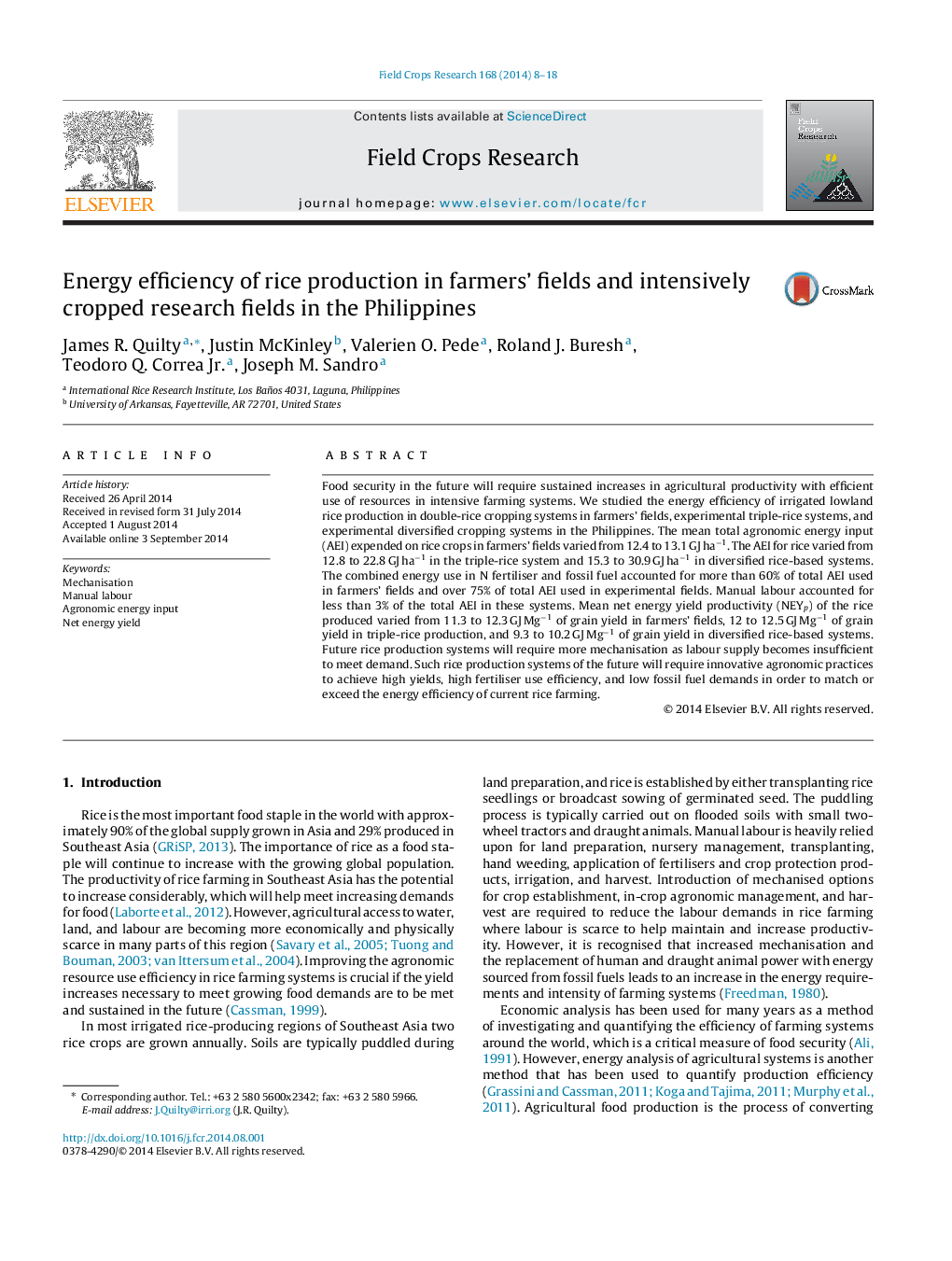| کد مقاله | کد نشریه | سال انتشار | مقاله انگلیسی | نسخه تمام متن |
|---|---|---|---|---|
| 4509965 | 1624695 | 2014 | 11 صفحه PDF | دانلود رایگان |
• N fertiliser accounted for 39–48% of agronomic energy use in farmers’ fields.
• Manual labour accounted for less than 3% of the energy consumed in farmers’ fields.
• The net energy of rice grain yield was 11.3–12.3 GJ Mg−1 in farmers’ fields.
• High yields are required to maintain energy efficiency in mechanised rice production.
• Intensification of rice production can achieve high energy efficiency.
Food security in the future will require sustained increases in agricultural productivity with efficient use of resources in intensive farming systems. We studied the energy efficiency of irrigated lowland rice production in double-rice cropping systems in farmers’ fields, experimental triple-rice systems, and experimental diversified cropping systems in the Philippines. The mean total agronomic energy input (AEI) expended on rice crops in farmers’ fields varied from 12.4 to 13.1 GJ ha−1. The AEI for rice varied from 12.8 to 22.8 GJ ha−1 in the triple-rice system and 15.3 to 30.9 GJ ha−1 in diversified rice-based systems. The combined energy use in N fertiliser and fossil fuel accounted for more than 60% of total AEI used in farmers’ fields and over 75% of total AEI used in experimental fields. Manual labour accounted for less than 3% of the total AEI in these systems. Mean net energy yield productivity (NEYp) of the rice produced varied from 11.3 to 12.3 GJ Mg−1 of grain yield in farmers’ fields, 12 to 12.5 GJ Mg−1 of grain yield in triple-rice production, and 9.3 to 10.2 GJ Mg−1 of grain yield in diversified rice-based systems. Future rice production systems will require more mechanisation as labour supply becomes insufficient to meet demand. Such rice production systems of the future will require innovative agronomic practices to achieve high yields, high fertiliser use efficiency, and low fossil fuel demands in order to match or exceed the energy efficiency of current rice farming.
Journal: Field Crops Research - Volume 168, November 2014, Pages 8–18
